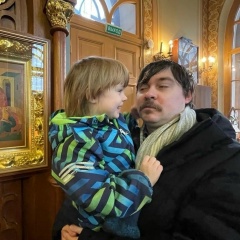Суды Божий, возлюбленные братья, почти всегда сокровенны, но никогда не несправедливы. И поскольку мы читаем, что святые мужи отмщают в этом мире некоторым грешникам, мы должны рассмотреть, по какой причине так происходит, но сделать это с чистой и проникновенной верой. Ведь поскольку в Ветхом Завете наказание за грехи было телесным, всем были известны примеры, сколь часто кто-либо подвергался достойному наказанию. Однако не каждый, как хотел, во гневе своем истязал народ, но начальники или судьи, чтобы прочие имели страх, осуществляли справедливое наказание. Ведь сам блаженный Моисей, о котором читаем, что он был кротчайший из всех людей на земле (Чис 12:3), сходя с горы, когда узнал, что народ принес жертвы идолам, приказал умертвить три тысячи человек (ср. Исх 32:28) — не для того, чтобы утолить свой гнев, но чтобы отомстить за оскорбление, нанесенное Богу, и чтобы прочие, увидев это, никогда не пытались впредь совершать подобные грехи. И чтобы мы понимали, в каком состоянии духа он приказал так сделать, он, возвратившись к Господу, молил [Его], говоря: Если не отпустишь народу Твоему грех его, изгладь меня из книги Твоей, в которую Ты вписал (ср. Исх 32:31-32). Вот истинная и непорочная любовь: он приказал убить немногих, чтобы шестьсот тысяч, не считая женщин и детей, освободить; посему, если бы и он, движимый ревностью о Боге, не покарал немногих, то Божественная справедливость уничтожила бы всех. Также и праведный священник Финеес убил собственной рукой, [пронзив] мечом, одного из начальников, который возлег с иноплеменницей. И о том, в каком духе он сотворил это, свидетельствует Сам Господь, говоря: Финеес, возревновав о Мне, утолил гнев Мои так, что я не погубил весь народ Мой (ср. Чис 25:7, 10-11). Ибо Финеес сотворил так, [движимый] не животной ненавистью, но ревностью и любовью к Богу, не с тем, чтобы за себя отмстить, но чтобы спасти народ от Божиего гнева.
2. Мы знаем, что сотворил также и Илия: когда весьма гордый и беззаконный царь отправил к нему пятидесятоначальника с его воинами, поручив ему привести [Илию] к себе, блаженный Илия, скорбя о погибели своего народа, который был понуждаем нечестивым [царем] к идолопоклонству, в Духе Святом изрек, чтобы сошел огонь с небес и попалил их; чтобы после того, как одни погибли телесно, другие стали бы здравы сердцем. Но так как духовное лекарство никак на них не подействовало, Святой Дух устами Илии приказал убить и второго, пришедшего высокомерно, а также его воинов (ср. 4 Цар 1:3-17). То, с какой любовью совершали это Святой Дух или с каким духом Илия, засвидетельствовало смирение того, который пришел в третий раз: из чего мы ясно понимаем, что если прежде смирит себя человеческая слабая природа, то тотчас помилует ее милосердие Божие. Ибо не следует полагать, что они затем были посланы к Илии, чтобы его убить, но чтобы позвать его к царю. И поэтому блаженный Илия не свой гнев утолил, но отмстил за оскорбление Бога. Так же он поступил с языческими жрецами на Кармильской горе, когда приказал всех их убить (3 Цар 18:40): разумеется, для того, чтобы ложная религия, уничтоженная вместе со своими учителями, уступила бы место в человеческих сердцах истинной вере.
Очевидно, что Илия совершал все это не своими силами, но силой Святого Духа. Наконец, если хочешь знать, каким был Илия в одиночку, сам по себе, когда его ненадолго оставила благодать Святого Духа с тем, чтобы испытать его — и он не смог вынести угроз и одной блудницы, но бежал в пустыню на сорок дней пути (ср. 3 Цар 19:1-8). Тот, который, преизобилуя благодатью Божией, с помощью Святого Духа словом затворил небеса (3 Цар 17:1) и пламя низвел с высоты (3 Цар 18: 37-38), не смог вынести слов жалкой блудницы. Я для того рассказал об этом, чтобы мы понимали, что все эти деяния совершались не столько Илией, сколько Святым Духом, [действовавшим] через Илию. Поэтому не следует считать, что когда Илия причинял смерть, то хотел отомстить за себя.
2. Мы знаем, что сотворил также и Илия: когда весьма гордый и беззаконный царь отправил к нему пятидесятоначальника с его воинами, поручив ему привести [Илию] к себе, блаженный Илия, скорбя о погибели своего народа, который был понуждаем нечестивым [царем] к идолопоклонству, в Духе Святом изрек, чтобы сошел огонь с небес и попалил их; чтобы после того, как одни погибли телесно, другие стали бы здравы сердцем. Но так как духовное лекарство никак на них не подействовало, Святой Дух устами Илии приказал убить и второго, пришедшего высокомерно, а также его воинов (ср. 4 Цар 1:3-17). То, с какой любовью совершали это Святой Дух или с каким духом Илия, засвидетельствовало смирение того, который пришел в третий раз: из чего мы ясно понимаем, что если прежде смирит себя человеческая слабая природа, то тотчас помилует ее милосердие Божие. Ибо не следует полагать, что они затем были посланы к Илии, чтобы его убить, но чтобы позвать его к царю. И поэтому блаженный Илия не свой гнев утолил, но отмстил за оскорбление Бога. Так же он поступил с языческими жрецами на Кармильской горе, когда приказал всех их убить (3 Цар 18:40): разумеется, для того, чтобы ложная религия, уничтоженная вместе со своими учителями, уступила бы место в человеческих сердцах истинной вере.
Очевидно, что Илия совершал все это не своими силами, но силой Святого Духа. Наконец, если хочешь знать, каким был Илия в одиночку, сам по себе, когда его ненадолго оставила благодать Святого Духа с тем, чтобы испытать его — и он не смог вынести угроз и одной блудницы, но бежал в пустыню на сорок дней пути (ср. 3 Цар 19:1-8). Тот, который, преизобилуя благодатью Божией, с помощью Святого Духа словом затворил небеса (3 Цар 17:1) и пламя низвел с высоты (3 Цар 18: 37-38), не смог вынести слов жалкой блудницы. Я для того рассказал об этом, чтобы мы понимали, что все эти деяния совершались не столько Илией, сколько Святым Духом, [действовавшим] через Илию. Поэтому не следует считать, что когда Илия причинял смерть, то хотел отомстить за себя.
The judgments of God, beloved brothers, are almost always secret, but never unjust. And since we read that holy men are taking revenge on some sinners in this world, we must consider why this happens, but do so with a pure and soulful faith. Indeed, since in the Old Testament the punishment for sins was corporal, everyone knew examples of how often someone was subjected to worthy punishment. However, not everyone, as he wanted, tortured the people in his anger, but the rulers or judges, so that others had fear, carried out fair punishment. Indeed, blessed Moses, about whom we read that he was the shortest of all people on earth (Numbers 12: 3), descending from the mountain when he learned that the people had sacrificed to idols, ordered three thousand people to be killed (cf. Ex 32:28 ) - not in order to quench their anger, but in order to avenge the insult inflicted upon God, and so that others, upon seeing this, never try to commit such sins in the future. And so that we understand in what state of mind he ordered to do so, he returned to the Lord and prayed [Him], saying: If you do not release your people from his sin, expel me from your book in which you wrote (cf. Ex 32 : 31-32). Here is true and immaculate love: he ordered the death of a few, so that six hundred thousand, not counting women and children, would be set free; therefore, if he, driven by jealousy of God, did not punish the few, then Divine justice would destroy everyone. Also, the righteous priest Phinehas killed with his own hand, [piercing] with the sword, one of the chiefs, who reclined with a foreigner. And the Lord Himself testifies of the spirit in which he did this, saying: Phinehas, jealous of Me, quenched My anger so that I did not destroy all My people (cf. Numbers 25: 7, 10-11). For Phinehas did so, [driven] not by animal hatred, but by jealousy and love of God, not in order to avenge himself, but in order to save the people from God's wrath.
2. We know what Elijah also did: when a very proud and lawless king sent the fifty-ruler with his soldiers to him, instructing him to bring [Elijah] to himself, blessed Elijah, mourning for the death of his people, which was compelled by the wicked [king] to idolatry, in the Holy Spirit he uttered that fire came down from heaven and burned them; so that after some die bodily, others would become sound hearts. But since the spiritual medicine had no effect on them, the Holy Spirit ordered through the mouth of Elijah to kill the second, who came arrogantly, as well as his soldiers (cf. 4 Kings 1: 3-17). The love with which the Holy Spirit performed it or with what spirit Elijah witnessed the humility of the third time: from which we clearly understand that if human weak nature first humbles itself, then God's mercy will have mercy on it. For it should not be assumed that they were then sent to Elijah to kill him, but to call him to the king. And therefore, blessed Elijah did not quench his anger, but avenged his insult to God. He did the same with the pagan priests on Mount Carmel, when he ordered all of them to be killed (1 Kings 18:40): of course, so that the false religion, destroyed along with its teachers, would give way to true faith in human hearts.
Obviously, Elijah did all this not by his own strength, but by the power of the Holy Spirit. Finally, if you want to know what Elijah alone was, by itself, when the grace of the Holy Spirit left him for a short while to test him - and he could not endure the threats and one harlot, but fled to the desert for forty days of travel (cf. . 3 Kings 19: 1-8). He who, abounding in the grace of God, with the help of the Holy Spirit closed the heavens with a word (3 Kings 17: 1) and the flame brought down from high (3 Kings 18: 37-38), could not bear the words of a wretched harlot. For this, I told about this so that we understand that all these acts were committed not so much by Elijah, but by the Holy Spirit [acting] through Elijah. Therefore, one should not assume that when Elijah caused death, he wanted to avenge himself.
2. We know what Elijah also did: when a very proud and lawless king sent the fifty-ruler with his soldiers to him, instructing him to bring [Elijah] to himself, blessed Elijah, mourning for the death of his people, which was compelled by the wicked [king] to idolatry, in the Holy Spirit he uttered that fire came down from heaven and burned them; so that after some die bodily, others would become sound hearts. But since the spiritual medicine had no effect on them, the Holy Spirit ordered through the mouth of Elijah to kill the second, who came arrogantly, as well as his soldiers (cf. 4 Kings 1: 3-17). The love with which the Holy Spirit performed it or with what spirit Elijah witnessed the humility of the third time: from which we clearly understand that if human weak nature first humbles itself, then God's mercy will have mercy on it. For it should not be assumed that they were then sent to Elijah to kill him, but to call him to the king. And therefore, blessed Elijah did not quench his anger, but avenged his insult to God. He did the same with the pagan priests on Mount Carmel, when he ordered all of them to be killed (1 Kings 18:40): of course, so that the false religion, destroyed along with its teachers, would give way to true faith in human hearts.
Obviously, Elijah did all this not by his own strength, but by the power of the Holy Spirit. Finally, if you want to know what Elijah alone was, by itself, when the grace of the Holy Spirit left him for a short while to test him - and he could not endure the threats and one harlot, but fled to the desert for forty days of travel (cf. . 3 Kings 19: 1-8). He who, abounding in the grace of God, with the help of the Holy Spirit closed the heavens with a word (3 Kings 17: 1) and the flame brought down from high (3 Kings 18: 37-38), could not bear the words of a wretched harlot. For this, I told about this so that we understand that all these acts were committed not so much by Elijah, but by the Holy Spirit [acting] through Elijah. Therefore, one should not assume that when Elijah caused death, he wanted to avenge himself.
У записи 2 лайков,
0 репостов.
0 репостов.
Эту запись оставил(а) на своей стене Виктор Петров




















![Стас Однолетков -=[strast]=- Стас Однолетков -=[strast]=-](https://sun9-50.vkuserphoto.ru/s/v1/ig2/BQKIUfD3kthNCNNY9BS69xiPt_GjwVRhAU8D64L6gfeFjcmrTqYrLAC9NKgCppVxwhm79Mi5RypIHhjSHOhQK2uy.jpg?quality=95&crop=347,544,400,400&as=32x32,48x48,72x72,108x108,160x160,240x240,360x360&ava=1&cs=200x200)


